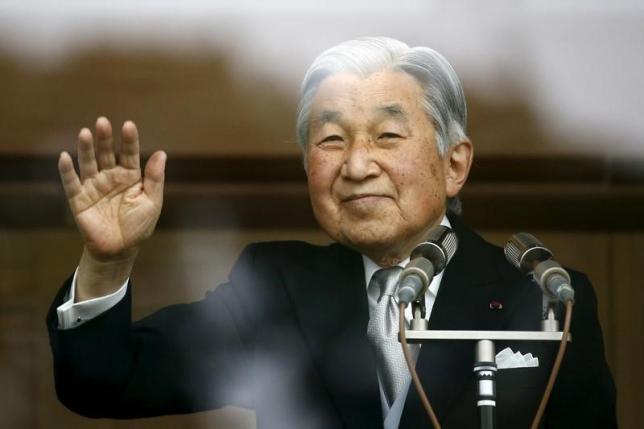Tokyo- Japanese Emperor Akihito hinted through a Monday recording published publicly that he soon might be stepping down and handing over the reins to his son Japanese Crown Prince Naruhito.
In the recording Akihito expressed worries that his health will prevent him from fulfilling his duties as the head of state.
The ten-minute recording also delivered the emperor’s desire to directly abdicate the throne given the political sensitivity of the subject.
However, Akihito did elaborate on viewing the emperor of Japan to be a national unity icon, and believing that the emperor must hold the capacity to fulfill duties and obligations.
The 82-year-old Emperor Akihito had heart surgery and had been treated for prostate cancer, with public broadcaster NHK reporting last month that he wanted to step down.
Known for his calm nature, Akihito seemed very determined on lifting the topic into public discussion, despite the refusal of both The Imperial Household Agency and some government officials.
Akihito abdicating the throne to the last surviving empire while still living poses a legal discrepancy, given it is constitutionally illegal.
Japanese law says the emperor must serve until death and is forbidden from appealing directly for retirement or abdication.
In post-war Japan, the emperor has been constitutionally defined as the “symbol of the State and of the unity of the people, deriving his position from the will of the people with whom resides sovereign power” and he has “no powers related to government.”
Such constitutional restraints made the public address by Akihito a masterclass in the art of circumlocution.
Naruhito has one daughter. Since only males can inherit the Chrysanthemum throne, the title after Naruhito would pass to his brother, Prince Akishino, and then to nephew Hisahito, nine.
